Q&A WITH CLASSLESS ACT
PHOTO BY TRAVIS SHINN
If you play it, they will come. That seems to be the battle cry for the breakout Los Angeles-based modern rock quintet Classless Act—Derek Day (lead vocals); Dane Pieper (guitar); Griffin Tucker (guitar); Franco Gravante (bass) and Chuck McKissock (drums)—who hail from Poland, Hawaii, L.A., Argentina and Dallas and met through social media. Supposedly, you might expect this as a fairly common means of connection and bonding in today’s circles. But there is nothing “common” about Classless Act. Albeit young, these lads are all accomplished multi-instrumentalists and veterans of countless bands. Their debut album Welcome to the Show (Better Noise Music) was released in June 2022 and has received rave reviews. They have steadily been gaining attention from fellow artists and fans alike, coming off of this past summer’s 39-date trek with Def Leppard, Mötley Crüe, Poison and Joan Jett, called “The Stadium Tour.” The tireless and industrious rockers recently completed their very first national headline tour and released a five-song EP, Welcome to the Acoustic Show, just this past December, featuring stripped-down versions of their select electric hits.
Music Connection: You all come from such varied backgrounds, both musically and geographically. Once you all sort of found each other, what are the tips you’ve discovered to making this alliance work?
Franco Gravante: There was a lot of work involved. It took years to find the right people. We went through a lot of members, as well. But this time it felt right. We’re like five brothers in a way. But it’s mostly about working, writing and to never stop having a good time. I think that’s really important.
Derek Day: We’ve all been in multiple bands. We all check in with each other here about what we all want out of the band. It always helps to share the same, or near similar, vision.
Gravante: We all come from different backgrounds and see life in a different way. So, it probably shouldn’t work, honestly, but it does.
MC:It sounds like you have a lot of respect for each other?
Day: Oh yeah. Everyone plays a lot of different instruments. Everyone sings and writes really well, too. I could never say I’m better than anyone else, because I’m not. We all keep each other in check. It’s very inspiring.
MC:What was the path to getting your deal with Better Noise Music?
Day: We showcased for multiple labels. A lot of people liked us. But it’s all about finding the right fit. It’s like a family thing. Right off the bat, when we met Better Noise they just liked our vibe. At the time, they had a lot of active rock bands, but were maybe looking for something a little raw or throwback. It was just preparation and opportunity at the same time. We had been making demos and it sort of popped up one day. We got a manager and that manager mentioned Better Noise. But it’s like family. They trust us so much.
MC: So, that “family aspect” was very important to your decision to sign with them?
Day: Yes. People think you want the best label with the most well-known artists. But that’s not true. You’ll get shelved and that doesn’t, necessarily, mean you’re gonna win. You need somebody to work for you and with you. And that makes you wanna work harder for them.
MC:What was it like working with veteran producers like Bob Rock and Joe Chicarelli?
Gravante: It was awesome and we learned a million things. Of course we heard a lot of stories about work with other bands, but when it came to our music, Bob did things we just never thought about or thought were possible. It was incredible. It was the same with Joe. He’s a genius. He’d be recording stuff, but do it in such a way that it sounded like a final mix.
MC:Talk about working with Vince Neil and Justin Hawkins on your debut album Welcome to the Show.
Day: It was almost on a whim. We got on the Stadium Tour and felt a little more relaxed around these legends. We just threw the question out to Vince via email. We were opening up for Mötley Crüe in the summer and we asked if he wanted to sing on our namesake song “Classless Act.” It just felt like a Mötley song. And he said, “Sure, why not!” And it was the same thing with Justin. He played a guitar solo on “This Is For You.” And we had been writing with him, too, so we had a bit of a relationship. But they’re both so busy, with Vince in Nashville and Justin was in Switzerland at the time. We wouldn’t be in the same room with them, but through multiple Zooms and stuff it turned out great. It was all cool homey shit, as they say.
MC:What were some of the takeaways from your experiences opening for Mötley Crüe, Def Leppard, Poison and Joan Jett on that mega-stadium tour this past year?
Gravante: We would watch Joan Jett do her sound check all the time, and that’s rock royalty right there. And everybody was kind and just happy to be there. It was an amazing experience. The bands gave us a lot of encouragement to keep working hard and that they enjoyed our set.
MC:Welcome to the Acoustic Show has you guys, of course, taking your songs in a slightly different direction. Who chose this concept and how did you make decisions on what songs to include for this EP?
Gravante: We just wanted to show a different side of the band. We didn’t know what to expect. But it came out great! It’s a different version of the same song. We just went into the studio in one day/one take. It’s very raw and fresh, with no overdubs. We were happy with the result.
MC:Do you normally write a lot of your songs acoustically and then flesh them out from there?
Gravante: No. We write a lot on electric guitar and piano. Or we do a full band demo on computers. Sometimes we write on acoustics, but a lot of songs on this album originally had distortion.
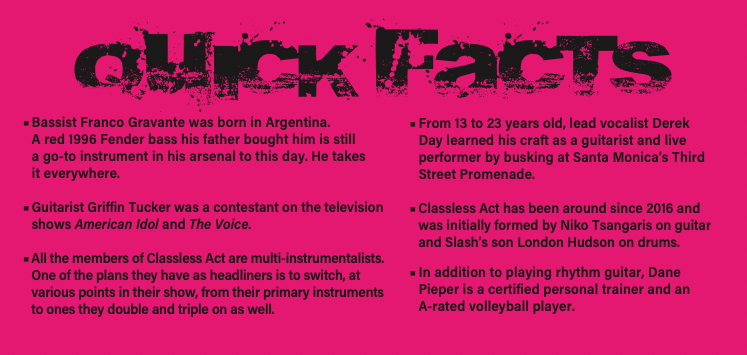
MC:What’s it like to embark on your first headline tour?
Gravante: We’re playing our whole album on this tour, which we never did before. We’ll do instrument swapping between all of us. There will be some new songs, as well.
MC:How much input does the band have on producing and conceiving your music videos?
Day: I would say it’s quite collaborative. We are fans of storylines. We also like simplicity. Because everyone is from everywhere, ideas spark from a little flame and no one really knows where they come from. So, it depends on which video we’re talking about. We tend to ask directors to write us a treatment and then we’ll, maybe, tweak it.
Gravante: Last year we did four in one day, because we were getting ready to go on tour. So, we were writing everywhere, just trying to make it happen.
MC:It seems you have a bit of a repertory company of the same actors in a number of your videos. There’s also a humorous vibe that seems to flow throughout your videos, as well.
Gravante: Yeah, they’re mostly friends and family.
Day: My brother has been in some and just a bunch of homies that are close to us.
MC:How does your songwriting process work on an individual and collective basis?
Gravante: Well, there’s not one way that we do it. Sometimes we get together and write something. Sometimes Derek will come with a song already written and sometimes we work with people outside the band on a song. There are a lot of different ways that we write. Sometimes we might make changes to a song the day of the recording.
Day: Any way we can get something good, we will do it. If we have to squeeze a tree for juice we will do it. If you want a specific example, Franco wrote all of “Haunting Love” and “Thoughts From a Dying Man.” That just comes from his heart. No one else could’ve done that. And I’ll write something like “Made in Hell” or “Circles.” But then our rhythm guitarist Dane will bring in this beautiful chorus on the song “Walking Contradiction.” Chuck writes the riff to it and we mush it all together. The song that I like is “All That We Are” because it’s mostly Franco’s riff, which is the heart of it. But then everyone else brings their flavor, and I’ll bring in lyrics to give it some quirkiness. Everybody in Classless seems to meet in the middle and shake hands on “All That We Are.”
MC:How do you know when a song is finished and ready for the public?
Day: I don’t think, necessarily, you do know. You just throw it out there and see if it works. And then the next month you can say you knew a song was done all along, but you never really know. It was just in rehearsal the other day I said I wished I made these changes in a song. But, at a certain point, you’ve got to let a song go and be what it will be. It’s destiny and it’s out of your hands.
MC:You’ve collaborated with other writers, like Keith Nelson from Buckcherry. How did that partnership come about and what does he, and others, bring to the table?
Day: I played a gig with Skid Row’s Scotti Hill. He’s one of my favorite guitar players. Scotti recommended I hang out and write with Keith. So, I had a writing session with him, but then had to go on tour. But, lo and behold, the universe brought us back together. When we got a manager, he knew Keith and knew he was an amazing songwriter. He urged us to write with him. We were writing, like, punk songs and we needed to write more “song” songs. So, Keith sort of whipped us into shape.
Gravante: “This Is For You” was the first song we wrote with Keith. It happened pretty quickly. It was crazy.
Day: And in the process of writing, we sent back 7 to 14 demos. Sometimes that process goes on forever—”fix this, change that and try this!” It’s just a lot of work and being ready to re-record.
MC:Do you design a lot of your music with a stage show in mind, or do you write the material and fit it in wherever?
Day: Both. Like on “This is For You” there was more than one writer. Franco was focusing on the material to be really good. But, in my head, I was thinking about how good this song would sound on a stadium stage.
Gravante: When I’m writing I don’t really think about any of that. Once a song’s recorded, then you can think about all that other stuff.
Day: If it’s a really personal song, I don’t even think about what the label will think or anything. We write to have an outlet so we don’t friggin’ kill ourselves. It’s like therapy for us.
MC:What’s a typical day on tour for you guys?
Gravante: A lot of driving, dude (laughs)! We wake up in a hotel, try to get some breakfast. And then we get on the road to make it to the next venue, and do it all over again.
Day: It takes a lot of mind power not to make it so monotonous, because it does become a lot of 10 hour drives in the van. And everyone has different dietary needs. Dane needs to eat plates of food because he’s super buff. Griffin doesn’t eat, but two things. I have to eat a very specific way. So we’re figuring each other out a little bit. But it’s fun too. We bust each other’s balls all day long (laughs).
MC:And what do you like to do on tour when you have days off?
Gravante: I like to get as much rest as I can.
Day: Franco likes to chill as much as he can. But, see, he’s our equipment loader so he does a lot of physical groundwork for the band. We all help, but he needs to be in there. I always look for a good Polish restaurant or what kind of movie theaters are there in Kansas?
MC: What is your take on the current state of rock music? And what are you currently listening to?
Gravante: I think rock has been coming back for a while now. A lot of people say rock is dead, but I think that’s just a slogan. I think it’s in a good place. I love bands like Queens of the Stone Age. The music is hanging in and not going anywhere.
Day: I think Gene Simmons said rock is dead. Well, if it is dead it’s like a zombie. It’s still got some character to it. Franco and I were just talking about this band from L.A. called Funkasaraus. They are a funk band but have a lot of rock elements in what they do. And I hear a lot of pop mixing more rock into what they’re doing too. Post Malone is playing more guitar. I feel like these guys are trying to bring back real instruments. Rock & roll is really not, necessarily, a genre or sound. It’s really more of a mentality or lifestyle. I think rock is cool again. It kinda wasn’t cool for a minute and that’s why grunge happened. But I think a lot more young people are seeking it out. That’s why they’re coming to the Stadium Tour and the shows. It’s kinda rebellious, too. But now that we’ve been on the road and done the work, I respect the effort to keep these fires burning.
MC: What are the challenges—pro and con—of being in a band?
Gravante: The challenges are always about trying to reach the fans and also keep your team behind you together. The pros are just getting to play music and make a living out of it.
Day: It’s kind of dehumanizing to constantly find new ways to make fans. You should just be able to sell records. But now I’ve gotta do an ice bucket challenge doing a handstand. This is not music and what I signed up for (laughs)! It’s stuff like that, which I don’t mind, but it doesn’t seem real to the art and what I’m writing about. But it’s awesome to be making a living like this, although we’re still struggling to pay rent out here. The money’s not amazing, but it’s getting there. Another pro I would say is I don’t need a therapist. I put it all into the music and put it all out there. Playing music is one of the hardest jobs in the world to stay alive in. It’s also one of the most invigorating!
MC:What kind of effect does your music have on your fan base?
Day: People send us letters, photos and drawings. I don’t know how they get our address, but they do. And they tell us how a specific song got them through high school. It’s actually pretty touching. When we headline, we go out to the merch area just to talk to people and sign anything they want, for free. I remember bringing this one kid on stage at the Horseshoe Tavern in Toronto. He was really rocking out and was really into it. He was just beside himself. But our music seems to be having a positive impact on people. And we’re writing about stuff we’re just ripped to shreds about. We have nothing to say other than pure, honest realness, with plenty of hopes and dreams. I think people are starting to hear that.
MC:What is the best career advice you’ve ever received?
Day: My buddy, bassist Tony Franklin, told me this industry is like a really fast-moving car. So, if you’re holding onto that bumper, when everyone else lets go, you’ll make it to your destination. And you really don’t have to be that talented. I think that’s a metaphor to work hard, hang on and don’t quit. It sounds simple, but every other day you’ve got to remind yourself to hold on.
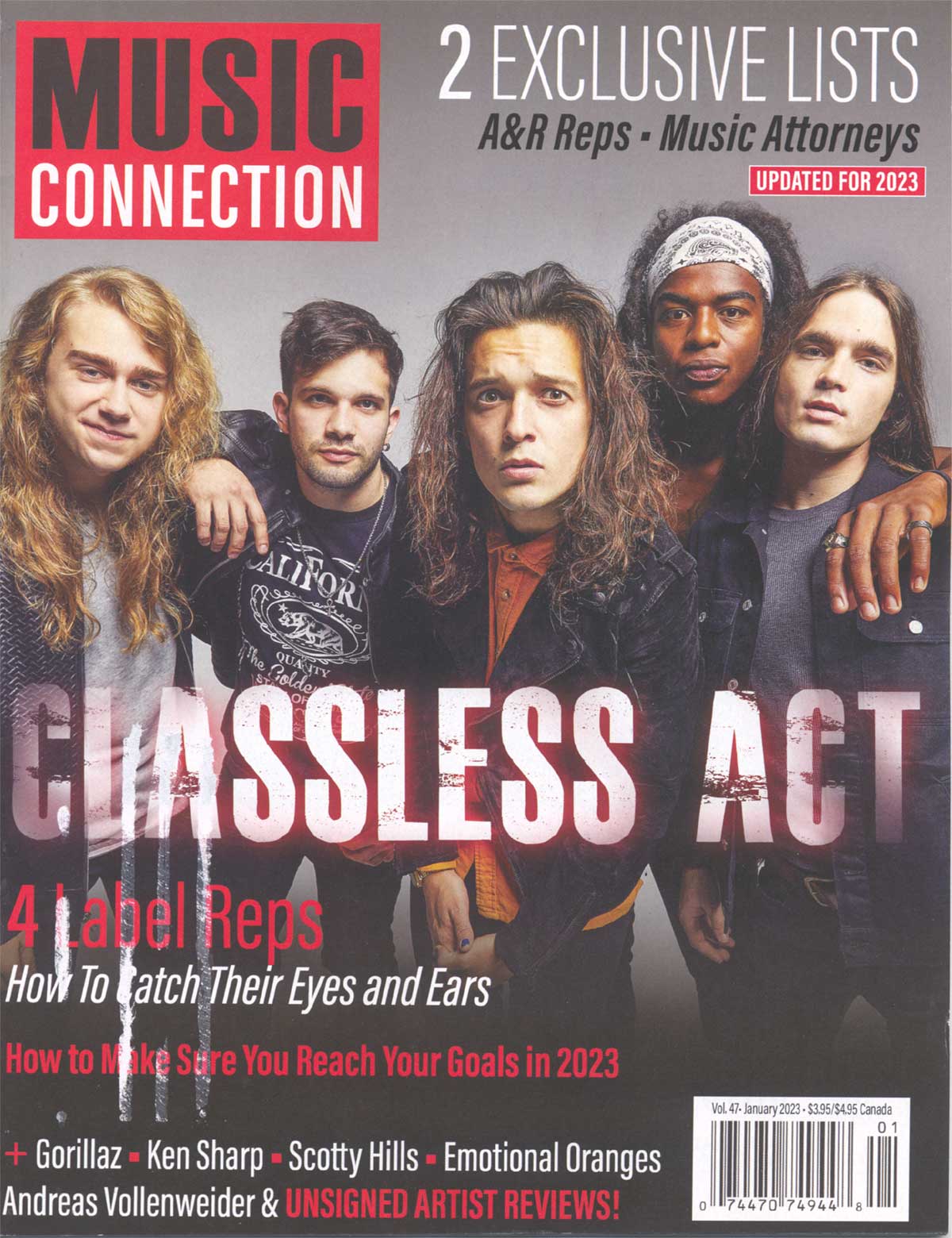
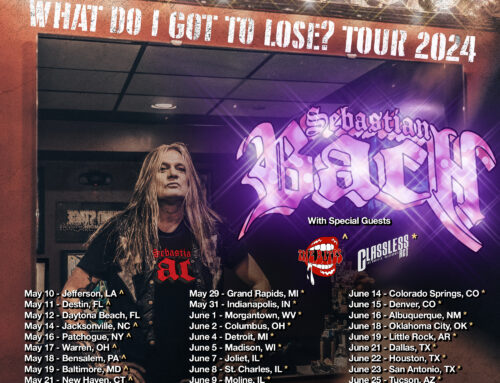
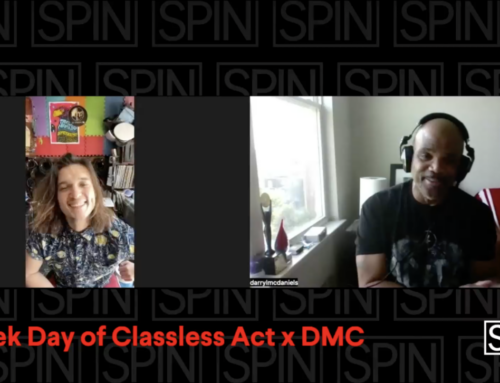
Social